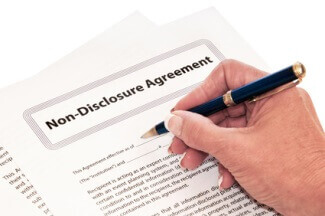 Companies often enjoy a competitive advantage in the marketplace because of their continuous use of confidential or trade secret information which is unavailable to their competitors. Though what qualifies as a trade secret or confidential information under the law can be complicated, it is good practice for companies to actively guard the secrecy of their confidential data. Protection becomes difficult, however, when companies communicate confidential information to their employees during the course of employment, and such disclosures are made without evaluating the consequences of an employee’s (or former employee’s) dissemination of the confidential information to unintended third-parties.
Companies often enjoy a competitive advantage in the marketplace because of their continuous use of confidential or trade secret information which is unavailable to their competitors. Though what qualifies as a trade secret or confidential information under the law can be complicated, it is good practice for companies to actively guard the secrecy of their confidential data. Protection becomes difficult, however, when companies communicate confidential information to their employees during the course of employment, and such disclosures are made without evaluating the consequences of an employee’s (or former employee’s) dissemination of the confidential information to unintended third-parties.
Practically speaking, the leaking of a company’s confidential information can hinder or even destroy the entity’s leverage in the marketplace, and a company is wise to take as many measures as possible to protect its confidential information. Accordingly, more and more companies are recognizing the value of requiring their employees to sign non-disclosure agreements. Employers in highly competitive industries often demand strict non-disclosure clauses because of the potentially perilous consequences from disclosure.
By entering into a non-disclosure agreement, the employer and employee can agree that the company considers certain information disclosed in the course of their relationship confidential in nature and that the employee will not disclose such information to unauthorized third-parties. What constitutes “confidential information” is typically defined in the agreement by the company. For example, a company may consider its business plans, a process of manufacturing, a list of customers, or other information obtained from third-parties under confidential circumstances, to constitute confidential or trade secret information. Carefully defining what the company considers to be its confidential information can allow the company to protect its legitimate interests, while giving its employees some comfort level regarding potential revelation of other information not protected from disclosure. The importance of a company’s ability to explain what it considers to be its confidential information, and why, is beneficial not only to the parties to the contract, but potentially to a court as well.
There is not a “one size fits all” non-disclosure agreement to cover all businesses, and companies should analyze what information truly needs protection versus what is already generally known in the industry. Technological advances and the popularity of social media often illustrate (far too late) the need for companies to be proactive and diligent in safeguarding their confidential information. For example, businesses frequently require or allow employees to use their personal electronic devices for company business. Though companies may view this as a cost-saving measure, entities may be encouraging their employees to bring with them into public the company’s confidential information, both before and after the employee’s separation from the company. Companies should, therefore, consider providing to employees company phones or clearly address the treatment of the company’s confidential information related to these devices in their non-disclosure agreements, including return of such confidential information upon an employee’s separation from the company.
While a company’s confidential information may allow it to sustain a competitive advantage, a company’s failure to communicate the company’s expectations to its staff regarding the treatment of such information may give rise to serious business harm. In an ever-evolving and complex marketplace, businesses should safeguard their competitive advantages in multiple ways, including through formal written non-disclosure agreements.
